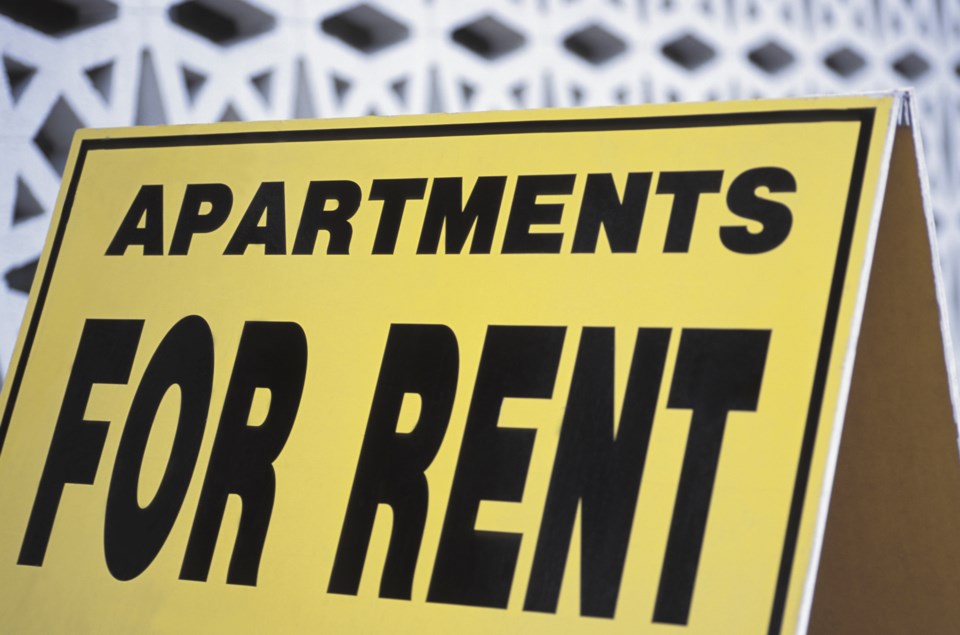If you are the sole provider in your home, and you're working a minimum-wage job in Greater Sudbury, then, on average, you shouldn't be able to afford a two-bedroom apartment in most parts of the city, according to a report titled “Unaccommodating: Rental Housing Wage in Canada”.
Released on Thursday by the Canadian Centre for Policy Alternatives, the report looks at the affordability crisis faced by 4.7 million families in the country who rent their homes. It determines the hourly wage a full-time worker must make in order to rent an average two-bedroom apartment using no more than 30 per cent of their income — also known as the rental wage.
The report uses two-bedroom units, because they are the most common types, making up 50 per cent of all units rented. The numbers reveal a gloomy picture for low income earners not only in Greater Sudbury, but across the entire country.
A sole income earner working full time should be able to afford a modest two-bedroom apartment for their family in a country as rich as Canada, said the authors of the report. But in most Canadian cities, including Canada’s largest metropolitan areas of Toronto and Vancouver, there are no neighbourhoods where it is possible to afford a one or two-bedroom unit on a single minimum wage.
The report breaks down the country's largest cities into 795 neighbourhoods. In only three per cent of those neighbourhoods can a minimum-wage earner comfortably afford the average two-bedroom rental rate.
Toronto, unsurprisingly, is the most expensive city in Ontario. The wage needed to rent the average two-bedroom apartment is $34 an hour, while someone making minimum wage would need to work 96 hours a week to afford the same apartment.
Windsor is at the bottom of the list. The wage required to afford the average two-bedroom apartment is $18 an hour, while someone working minimum wage would need to work 50 hours a week to afford the same apartment.
In Greater Sudbury, there are nine neighbourhoods listed in the report. Overall, on average, full-time workers would need to make $20/hour to afford the average two-bedroom apartment, or work 58 hours a week at minimum wage ($14 an hour) to rent that same apartment.
Furthermore, only 11 per cent of the two-bedroom apartments in the entire area are affordable at minimum wage.
Following is a breakdown of the nine neighbourhoods in Greater Sudbury:
Valley East/Capreol is the most affordable neighbourhoods. According to the report, a worker would need to make $13.87 an hour or work 40 hours a week at the minimum wage rate of $14 an hour to afford the average two-bedroom apartment.
The Lockerby area, in the city's South End, is the highest. A full-time worker would have to make $24.21 an hour to afford the average two-bedroom apartment. At minimum wage, that same person would have to work 69 hours a week to afford the same apartment.
Minnow Lake: A full-time worker would need to make $20.65 an hour to afford an average two-bedroom apartment, or work 59 hours a week at minimum wage.
New Sudbury: A full-time worker would need to make $19.87 an hour to afford an average two-bedroom apartment, or work 57 hours a week at minimum wage.
Donovan/Flour Mill: A full-time worker would need to make $19.17 an hour to afford an average two-bedroom apartment, or work 55 hours a week at minimum wage.
West End/Copper Cliff: A full-time worker would need to make $18.79 an hour to afford an average two-bedroom apartment, or work 54 hours a week at minimum wage.
Kingsmount/Downtown/Bell Park: A full-time worker would need to make $18.37 an hour to afford an average two-bedroom apartment, or work 52 hours a week at minimum wage.
Rayside Balfour: A full-time worker would need to make $18.33 an hour to afford an average two-bedroom apartment, or work 52 hours a week at minimum wage.
Nickel Centre/Garson/Coniston: A full-time worker would need to make $16.40 an hour to afford an average two-bedroom apartment, or work 47 hours a week at minimum wage.
The report has put a critical spotlight on the federal government's plans for a rent-supplement program for low-income households.
Spending on the benefit is set at $4 billion over a decade — split among federal and provincial governments — which will require tough decisions about who gets it, how much they can receive, and when it gets taken away.
